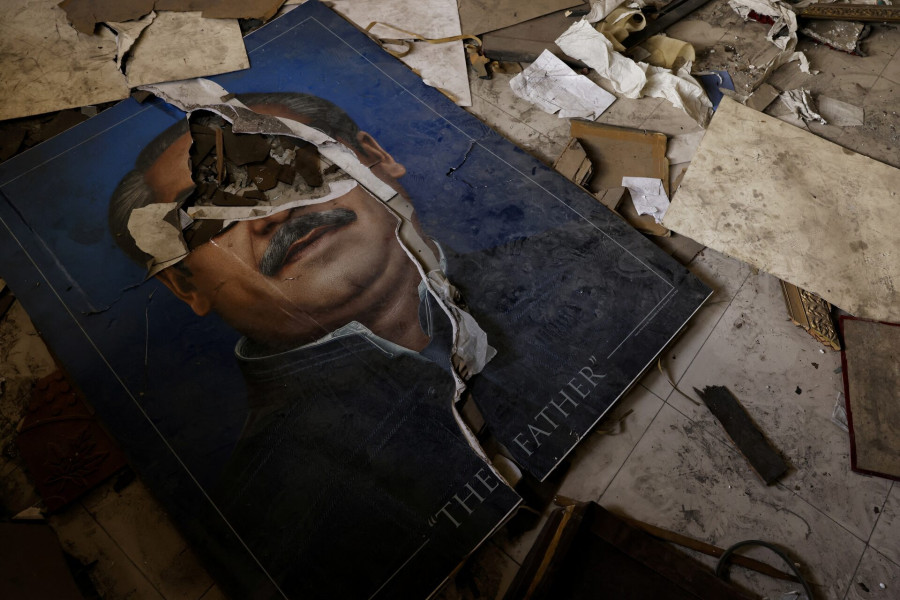Columns
Bulldozing history in Bangladesh?
The Awami League, which led Bangladesh’s liberation war, cannot be dismissed from politics.
Smruti S Pattanaik
On February 5, six months after the fall of Sheikh Hasina’s government in Bangladesh, a mob brought down Dhanmondi 32, the residence of Bangladesh’s independence icon and Hasina’s father, the late Sheikh Mujibur Rahman. Dhanmondi 32 epitomises so much of history as it was the same house where Rahman and his family members were assassinated during a military coup in August 1975. Along with Dhanmondi 32, the homes of Awami League (AL) leaders/ministers, including the former President’s house, were attacked and set ablaze across the country.
It is alleged that an online speech Hasina addressed to her cadres on the same day sparked the violent reaction. Reportedly, the attackers were mobilised by an online campaign that called for a ‘bulldozer march’ to demolish what one of the student leaders, Hasnat Abdullah, described as a ‘shrine of fascism’. But the attack started even before Hasina spoke online.
Reaction of the interim regime
The interim regime, which is struggling to enforce its writ, blamed Hasina for instigating violence with her ‘incendiary remarks’ and India for allowing Hasina to address her supporters. It was apparent that the interim regime in Bangladesh had the knowledge of the social media campaign. Moreover, two prominent leaders of the Anti-Discriminatory Student Movement, now known as the Nagarik Committee—Sharif Osman Hadi and Hasnat Abdullah—supported this demolition. The deployed security force let the demolition take place, an uncanny resemblance to the attitude of Mujib’s security on the night of his assassination in Dhanmondi 32. While Mahfuz Alam, one of the student advisers, has been insisting the “politics of Mujibism and idolization of Sheikh should be abandoned”, Hasnat Abdullah, a student activist, said the new Bangladesh belong to the people. It belongs to those who defeated fascism, arguing that the demolition of Sheikh Mujib’s house was a spontaneous incident.
Since Hasina’s ouster, anything associated with the Awami League regime has faced people’s wrath. Sometimes spontaneous, but at other times, there have been engineered efforts to do away with the party and its legacy. There is no denying that the AL monopolised the liberation war narrative. Over the past 15 years, Hasina has not given any credence to leaders who played a momentous role in the liberation war. The entire narrative became party-centric, and Mujib remained the only figure. After the August 5 upheaval, many in Bangladesh blame Hasina for the denigration of Mujib.
Election, reforms and banning of Awami League?
Interestingly, since the fall of Hasina’s regime, both the student leaders and the interim regime have wanted to ban the AL from engaging in politics in Bangladesh. Although the trial of the party and its leader is growing, the investigation will take time. While the Chhatra League student organisation of the AL is facing restriction, the Bangladesh Nationalist Party also does not wish for a ban on the AL. Some student leaders argue that the decision will be taken once the legal procedure is complete.
While the party blames Hasina for her provocative speech on August 5, it also condemns the interim regime for its inability to enforce order. The BNP has insisted on the trial of Sheikh Hasina and others involved in the July-August killings. Some argue that the Awami League should apologise to allow the party to participate in the elections. Others have contended that the AL ideology will not be allowed in Bangladesh.
Notably, the Brigadier General (retired) M Sakhawat Hossain was removed as Home Adviser and was made Adviser for the Ministry of Textiles and Jute for his remarks on the Awami League. He said, “As a political party, organize yourselves. Participate in elections. If the people vote, go ahead”.
The BNP has announced a country-wide programme from February 12 -25 to get in touch with the voters, appraise them for an early election and highlight the interim regime’s failure to control prices. Jamaat Islami insists on reforms before the election, contending that without reform, it will be an ‘electoral genocide’. The party wants minimum reform that suffices for free and fair elections at the earliest. It suspects that a delay in the election would serve the interests of invisible forces to linger in the political vacuum.
In fact, the attack on Dhanmondi 32 and in various parts of Bangladesh targeting the AL leaders is seen as part of a plot by the BNP to delay the elections. The BNP and the Jamaat also differ in constitutional reforms. The students have formed the Jatiyo Nagarik Committee and said they will soon announce a political party.
‘Operation Devil Hunt’
The Bangladeshi government has launched ‘Operation Devil Hunt’, which has led to the arrests of many affiliated with the AL. The government took note of the attack on students in Gazipur, yet no action has been taken against those involved in the burning and looting of properties belonging to the AL leaders. Dhaka has blamed Delhi for allowing Hasina to destabilise Bangladesh through her speech. Meanwhile, India has issued a statement saying that what happened to Mujib’s Dhanmodi house is ‘condemnable’.
Several incidents in the country have revealed lawlessness. In three separate places, the Islamists stopped a women’s football team from playing scheduled matches. The offices of the Jatiya Samajtantrik Dal, an alliance partner of the Awami League, were also demolished, and a banner was hung announcing that a mosque would be built there. However, the district administration has removed the banner and taken over the property.
Several AL ministers have been arrested on charges of murder. It is not clear whether there have been investigations that will prove the charges in the court of law. Moreover, the country’s judiciary needs serious reform to ensure any independent trial.
There seems to be an intolerance towards views that don’t align with the interim regime. Some genuine criticism of the regime is dismissed as inspired by the defeated forces—the AL sympathisers and supporters. People often demonstrate and obstruct roads to pressure the interim regime to address their demands. While there are high expectations from the regime, the government appears to find it impossible to keep pace.
As Bangladesh approaches elections, it remains to be seen whether the students can transform their movement into a political party and lay legitimate claims to govern the country. If the AL is not allowed to participate, the Jamaat Islami and the students would be jostling to occupy the political space left vacant by the AL. However, the Awami League, the grand old party of Bangladesh that led the liberation war that brought Bangladesh’s independence, cannot be simply written off from the history of Bangladeshi politics.




 17.12°C Kathmandu
17.12°C Kathmandu















